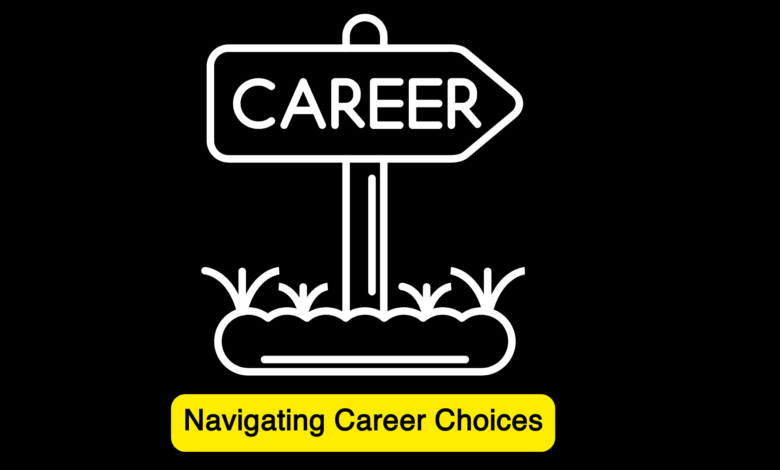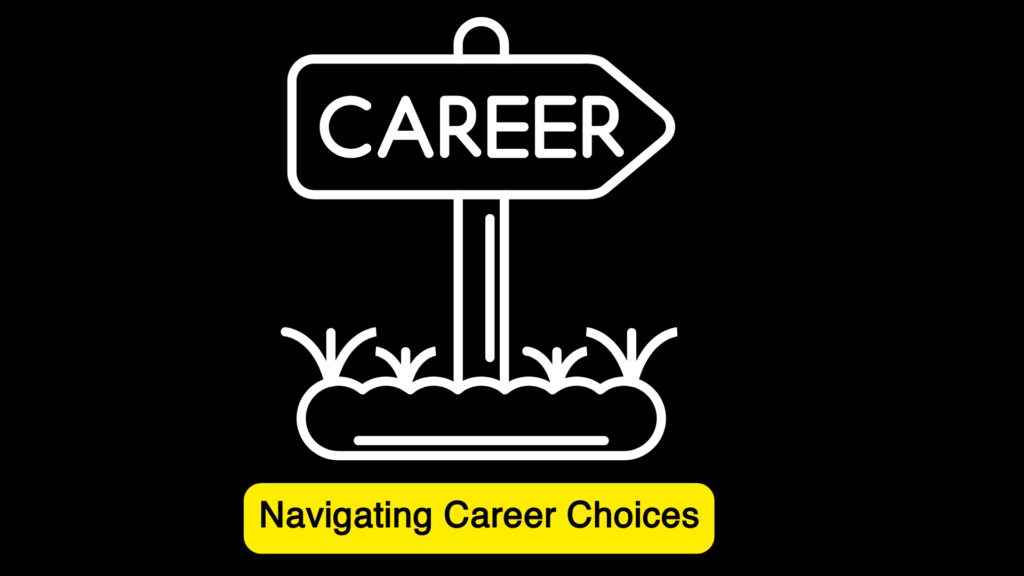Navigating Career Choices: How to Find the Right Path for You

Choosing a career is one of the most significant decisions in life, shaping our daily experiences, financial stability, and overall satisfaction. With a myriad of options and the evolving job market, finding the right path can be daunting. This article explores key factors to consider when making career choices, offering practical advice and insights to help you navigate this crucial journey.

Understanding Your Interests and Passions
- Self-Reflection and Assessment
The first step in choosing a career is understanding yourself. Reflect on your interests, passions, strengths, and weaknesses. What activities do you enjoy? What subjects or topics excite you? Identifying your natural inclinations can provide valuable insights into potential career paths. Consider taking career assessment tests, such as the Myers-Briggs Type Indicator (MBTI) or Holland Code, to gain a deeper understanding of your personality and preferences.
- Exploring Hobbies and Interests
Hobbies and personal interests often reveal potential career paths. For example, if you enjoy writing, you might consider careers in journalism, content creation, or copywriting. If you have a passion for technology, careers in software development, data science, or cybersecurity may be appealing. Exploring hobbies can help you discover new interests and potential career opportunities.
- Seeking Inspiration and Mentorship
Learning from others’ experiences can be incredibly valuable. Seek out mentors, attend career fairs, and network with professionals in fields of interest. Engaging with people who have pursued various career paths can provide insights into different industries, job roles, and potential challenges. Mentorship can also offer guidance and support as you navigate your career journey.
Evaluating Your Skills and Abilities
- Assessing Your Skills
Identifying your skills is crucial in determining suitable career options. Consider both hard skills (technical abilities) and soft skills (interpersonal abilities). Hard skills include specific knowledge and expertise, such as programming languages, data analysis, or graphic design. Soft skills, such as communication, problem-solving, and teamwork, are equally important and transferable across various industries.
- Developing New Skills
In today’s rapidly changing job market, continuous learning and skill development are essential. Identify any skills gaps and seek opportunities to acquire new competencies. Online courses, workshops, certifications, and hands-on experience can enhance your skill set and increase your employability. Developing a diverse range of skills can also open doors to multiple career paths.
- Understanding Transferable Skills
Transferable skills are abilities that can be applied in different job roles and industries. These include skills such as leadership, time management, and adaptability. Recognizing your transferable skills can broaden your career options and provide flexibility in the job market. Highlighting these skills in your resume and interviews can make you a more attractive candidate to potential employers.
Researching Career Options
- Exploring Different Industries
Researching various industries can help you understand the scope, opportunities, and challenges within each field. Consider factors such as industry growth, job stability, salary potential, and work-life balance. Exploring different industries can also help you identify emerging trends and potential future career opportunities.
- Understanding Job Roles and Responsibilities
It’s essential to understand the specific roles and responsibilities associated with different careers. Research job descriptions, day-to-day tasks, required qualifications, and potential career advancement opportunities. This information can help you determine if a particular job aligns with your interests, skills, and long-term goals.
- Considering Education and Training Requirements
Different careers may require varying levels of education and training. Consider the necessary qualifications, certifications, and degrees for your desired career path. Research educational institutions, programs, and courses that offer relevant training. It’s also important to consider the time and financial investment required for education and how it aligns with your career goals.
Making Informed Decisions
- Setting Career Goals
Setting clear and achievable career goals is essential for staying focused and motivated. Define short-term and long-term goals, such as gaining specific skills, securing a particular job role, or reaching a certain salary level. Having a clear vision of your goals can guide your decisions and help you stay on track.
- Weighing Pros and Cons
When evaluating potential career options, consider the pros and cons of each path. Factors such as job satisfaction, work-life balance, salary, job stability, and growth opportunities should be weighed carefully. Consider the potential impact of each career on your personal life, financial stability, and overall well-being.
- Seeking Professional Guidance
Career counselors and advisors can provide valuable guidance and support. They can help you explore career options, assess your strengths and weaknesses, and develop a career plan. Professional guidance can be particularly helpful during transitions, such as changing careers or entering the workforce for the first time.
Navigating Career Transitions
- Switching Careers
Switching careers can be challenging but also rewarding. It requires careful planning, self-assessment, and a willingness to learn new skills. Start by identifying your transferable skills and researching new industries and job roles. Networking, seeking mentorship, and gaining relevant experience can also facilitate a successful career transition.
- Advancing in Your Current Career
Career advancement often requires continuous learning, skill development, and networking. Seek opportunities for professional growth, such as attending conferences, joining professional organizations, and pursuing advanced degrees or certifications. Building a strong professional network and seeking mentorship can also enhance your career prospects.
- Adapting to the Changing Job Market
The job market is constantly evolving due to technological advancements, economic shifts, and changing consumer demands. Staying informed about industry trends and emerging technologies is crucial for career success. Embrace a growth mindset, be open to new opportunities, and continuously update your skills to remain competitive in the job market.
The Role of Work-Life Balance and Job Satisfaction
- Prioritizing Work-Life Balance
Achieving a healthy work-life balance is essential for overall well-being and job satisfaction. Consider factors such as work hours, commute time, and job flexibility when choosing a career. Remote work opportunities, flexible schedules, and supportive company cultures can contribute to a better work-life balance.
- Evaluating Job Satisfaction
Job satisfaction is influenced by various factors, including job role, company culture, work environment, and compensation. Reflect on what aspects of work are most important to you, such as job security, creative freedom, or opportunities for growth. A fulfilling career aligns with your values, passions, and personal goals.
- Addressing Burnout and Stress
Burnout and stress are common challenges in the workplace. Recognize the signs of burnout, such as fatigue, irritability, and decreased productivity. Prioritize self-care, set boundaries, and seek support from colleagues, friends, or mental health professionals. Addressing burnout and stress is crucial for maintaining long-term career success and well-being.
Conclusion
Choosing the right career path is a complex and ongoing process that requires self-reflection, research, and informed decision-making. By understanding your interests, skills, and values, you can explore various career options and find a path that aligns with your goals and aspirations. Embrace continuous learning, seek professional guidance, and stay adaptable to navigate the ever-changing job market. Ultimately, a fulfilling career is one that not only meets your professional and financial needs but also brings joy and satisfaction to your life.



Vitazen Keto Gummies There is definately a lot to find out about this subject. I like all the points you made
Real Estate I just like the helpful information you provide in your articles